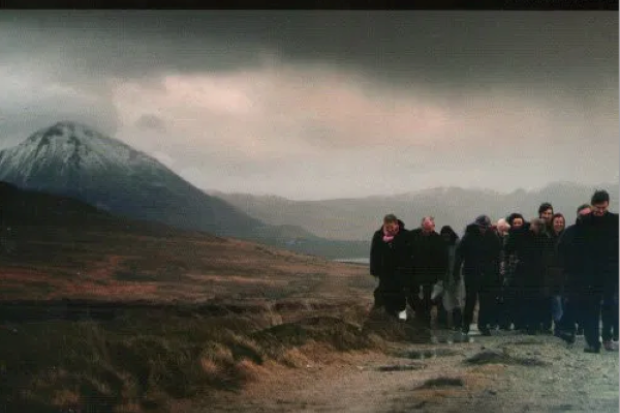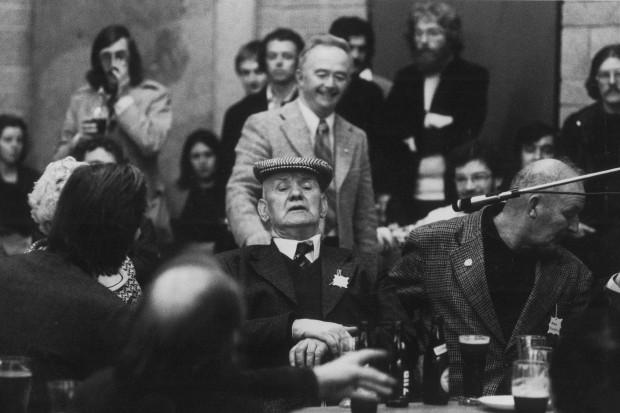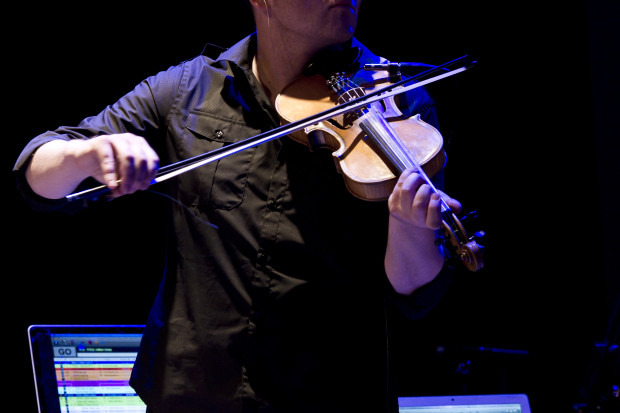Editorial: Music and Booze
Ireland’s alcoholic nature, though coming under increased scrutiny and criticism in recent national debates, still has a true ally in traditional music. A key conscript in the marketing and selling of Ireland’s pub culture, it can be sometimes difficult to tell whether traditional music is propping up our drink culture, or if it is the other way around.
Not everyone shows concern about the relationship between traditional music, the pub and our drink culture. It can be explained away relatively easily as a natural development in Irish music history. Informal traditional music performance did indeed end up in the pub through quite innocent circumstances in the post-Second World War years – as a result of the folk revival and the fleadh ceoil movement – but one wonders if the fact that it is still there today suits various commercial interests more than it suits traditional music.
Traditional music certainly has accrued benefits from having a connection to the pub. It has sweated out the changing pub culture over the last fifty years and come through, in several respects, in a better state than it was before. The question is, whether traditional music is now caught in a relationship whereby the music’s success and appeal relies upon traditional musicians actively keeping the music in pubs. That is a more sinister state of affairs, quite obviously detrimental to any art form which aspires to some freedom of expression, and one that traditional musicians didn’t necessarily choose to arrive at.
Traditional music moved into the pubs when the idea of playing for listening and not for dancing became important. By all accounts the quality of listening has deteriorated – so intense has the drink culture become that pubs are far noisier, musicians are disconnected from the pub clientele and what essentially remains is just the ‘social aspect’ amongst musicians (the meeting, playing together and drinking). We don’t need a pub to do that, so is it time for traditional music to move on again?
This is food for thought, but we should be aware that traditional music’s success up to now may actually arrest any chance of such an initiative. For today the pub session is glorified like never before – it is ingrained into every image of Ireland and there are many who have a vested interest in it staying that way. In addition, Irish television and radio programmes are driving home the pub doctrine. The producers of the main traditional music television programme at the moment, TG4’s Geantraí, pride themselves on having presented a ‘realistic’ picture of traditional music today – i.e. traditional music, the pub and alcohol joined at the hip – and at having captured traditional musicians in their supposed natural environment.
Of course traditional musicians do play in pubs, and it can be great fun, but does Geantraí really think this is the height of every Irish traditional musician’s ambition? Given the choice, would traditional musicians actually choose this format for presenting their music? Instead of Geantraí trying to perfectly reflect what is a neat commercial arrangement which makes a lot of money for those at the top who are packaging and selling Ireland, why don’t they take on some responsibility, offer traditional musicians a decent platform away from the pub, provide a decent, listening audience, and try to make a difference?
There is something curious and very post-colonial going on here. So littered is the history of traditional music with tales of oppression and distortion by those in authority, whether it be a foreign coloniser or a conservative Irish State, that today, many of those presenting the music to the public are terrified of adorning it with any of their own initiatives or ideas for fear they’ll be accused of meddling and be equated with ‘the oppressor’. They are obsessed, like war-reporters, with showing the ‘reality’, regardless of the fact that Irish traditional musicians might not be so pleased with their given reality, and would appreciate the media using their influence to affect some positive change.
Just because every recent generation of traditional musician has grown up hanging around pubs, being introduced to drink early, then often making it the magic ingredient in performance for the rest of their lives, is this what we want for all future generations too?
Is it not disturbing that when the Minister for Justice recently outlined his plan to ban those under the age of eighteen from being in pubs after 8pm, people began fuming, interpreting this as an attack on the very heart of traditional music ‘education’?
Niall Stokes, the editor of Hot Press, was incensed at the banning of under-18s. He wrote: ‘In relation to music, most traditional sessions take place in pubs and bars. This is the place where the promising youngster often gets to trade licks with the greats and to pick up on the nuances of the tradition for the first time.’ Indeed, what a tragedy it would be if a different environment to the pub had to be found to teach children music.
In one Dublin pub that regularly has traditional music sessions, there is a collection for the musicians during a break in the music. The collector announces that the money is a contribution towards ‘research into traditional musicians’ drinking habits’. It always gets a laugh and the tourists dig deep. But it’s actually not a bad idea. Armed with the reality of the situation, we might then be able to put traditional music’s connection to the pub into some perspective.
Published on 1 July 2003
Toner Quinn is Editor of the Journal of Music. His new book, What Ireland Can Teach the World About Music, is available here. Toner will be giving a lecture exploring some of the ideas in the book on Saturday 11 May 2024 at 3pm at Farmleigh House in Dublin. For booking, visit https://bit.ly/3x2yCL8.












